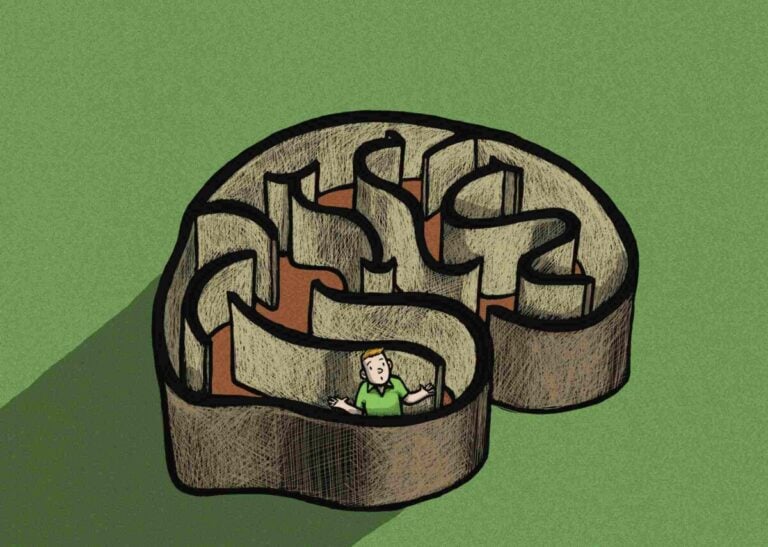Optimism is belief in the best and hope for a favorable outcome of events. Optimists look to the future with confidence and are willing to make efforts to bring about positive changes.
Although optimism is sometimes criticized as a naive, unfounded belief, its benefits are in fact well supported by scientific research. Optimists live longer, suffer less often from depression, and are more active in achieving their goals.
Moderate optimism is beneficial for mental and physical health, career success, relationships and many other aspects of life. Let’s take a closer look at where this positive life position comes from and how to develop it.
The origins of optimism

Firstly, an optimistic worldview is easier to form in childhood, when a person is open to new impressions, easy to teach and flexible in judgment. If a child was surrounded by the care, attention and support of significant adults, if he was more often lucky than troubled, the chance of growing up as a cheerful optimist increases significantly.
On the contrary, if a child has had to deal with chronic difficulties, injustice, cruelty from others, he is likely to develop negative beliefs about himself, the world and the future. This will lay the foundation for pessimism and disbelief in the possibility of change for the better.
Of course, an adult is not a “blank slate”. Even those who grew up in an unfavorable environment, with desire and effort, can rebuild their view of the world. But childhood and youth still leave a certain imprint.
Secondly, the development of optimism is greatly influenced by the values and attitudes accepted in the family and immediate environment. If parents, teachers, and significant adults believed in the best, set ambitious goals and knew how to enjoy life, most likely the child will learn this positive model of thinking and behavior.
He will absorb the feeling that the world is generally benevolent, and obstacles can be overcome through joint efforts. And even when faced with real difficulties, such a person will be less likely to fall into despondency and apathy, maintaining the belief that everything will work out. In a certain sense, optimism for him will become a natural, integral component of his picture of the world.
On the contrary, a child from a family where a negative attitude prevailed, where there was a lot of complaining, backbiting and blaming each other, is likely to perceive a pessimistic position as the norm. It will be more difficult for him to believe that something depends on him personally, and to find the mental strength to fight life’s difficulties.
Thirdly, optimism is strengthened by challenges overcome in the past. If a person, from a young age, has faced serious difficulties – illness, financial problems, difficult family relationships, etc. – but he somehow managed to cope with them, this struggle develops his character and strengthens his faith in his own strength.
Such an experience instills the conviction that troubles in life happen, but they can be overcome. With each new “victory” achieved, a person becomes more and more strengthened in the idea that he is not a helpless victim of circumstances, but the master of his destiny, capable of influencing events and changing the situation for the better. It is a powerful source of optimism and resilience.
On the contrary, those for whom everything has always been easy, who grew up in warm, comfortable conditions, often find it difficult to cope with the first serious tests. They lack internal resources, self-confidence and a positive attitude, so any problem unsettles them and causes stress. As a result, such people often turn into complete pessimists, convinced that the world is hostile and the future is hopeless.
How to develop optimism in yourself?

First, it is very useful to regularly notice and consciously record positive moments that occur in everyday life. No matter how small or mundane they may seem, it is important to appreciate these acts of luck or kindness and not take them for granted.
We tend to focus on problems and troubles, quickly forgetting about the good. Therefore, it is worth deliberately “training” the ability to notice reasons for gratitude, joy and hope. Even creating simple daily entries listing these positive things will gradually change your overall mood.
Secondly, rational, balanced optimism is based on a realistic assessment of the current situation and the resources available to improve it. If a person faces difficulties in life, instead of falling into panic, apathy or self-flagellation, it is useful to analyze the essence of the problems as objectively as possible and possible constructive steps to overcome them.
This will help, if not find an instant solution, then at least restore a sense of control over events, calm down and maintain a positive attitude necessary for further struggle. This analytical approach also strengthens the rational belief in the fundamental possibility of change for the better by adjusting one’s actions.
Thirdly, it is important to maintain an optimistic internal dialogue and be attentive to how you explain various events to yourself. When people experience failure, pessimists attribute it to internal, stable factors (“I’m a hopeless loser”), while optimists attribute it to external, temporary ones (“I’m just unlucky this time”).
Train your ability to interpret difficulties as the result of a combination of circumstances, the wrong choice of strategy, temporary fatigue, etc. Convince yourself that your abilities, experience and resources allow you to succeed in the future with a change in approach. Such positive “self-propaganda” will gradually become entrenched as a habitual inner voice.
Fourthly, the environment in which a person communicates and works is very important. A team of like-minded people with a similar positive worldview creates a synergy effect. It helps you cope with stress more easily, motivates you, and instills confidence in the success of your common cause.
On the contrary, constantly being in the circle of whiners and critics has a depressing effect and over time rebuilds the psyche of even an initially positively minded person. Therefore, given the opportunity, it is worth choosing people who think in a creative way for close communication.
Conclusions
So, moderate, balanced optimism is an important life position that has a tremendous impact on a person’s health, achievements and personal happiness. Fortunately, even those who are not given optimism by nature can develop it in themselves with the help of certain psychological techniques.














